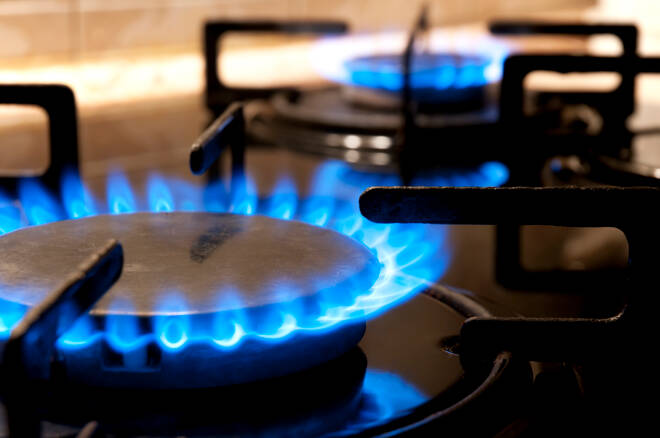Advertisement
Advertisement
Europe’s Difficult Balancing Act: Managing the Energy Transition Amid a Geopolitical Crisis
By:
Rising geopolitical tensions have added a new dimension to Europe’s transition towards a low-carbon economy, pushing energy security and sustainability further up the EU policy-making agenda.
The EU faces a difficult choice when it comes to possible sanctions on Russian gas in the case of any escalation of a Russia-Ukraine conflict.
Russia’s Gazprom supplied an estimated 146bn cubic meters of gas to the EU in 2021, making up around 35% of the natural gas the EU consumes annually. This dependence on Russian gas is expected to increase further if and when the Nord Stream 2 pipeline becomes operationalised.
At the same time, planned inclusion of natural gas in the EU Taxonomy (for sustainable activities) reflects the fossil fuel’s role as a crucial transition fuel amid an EU shift towards the low-carbon economy. The EU’s dependence on imported gas is therefore likely to further increase over the medium run, as use of coal and nuclear energy, in some countries, is gradually phased down, and domestic gas production continues to decline.
Current geopolitics underscore need for coordinated EU-wide energy strategy
Current geopolitical dynamics underscore a need for a closely coordinated EU-wide energy strategy in enhancing longer-run energy security and sustainability.
Prioritising and accelerating such initiatives would also signal to the Russian government that any escalation of the Russian-Ukraine conflict would ultimately damage rather than enhance European demand for Russian energy exports. These exports remain to this day a cornerstone of the Russian economy with export of oil and gas products to the European market generating >EUR 90bn over a last year alone.
In the near term, the EU could endure a larger-scale disruption to Russian gas supplies
In the near term, the EU would likely be capable of enduring a larger-scale disruption to Russian gas supplies until the summer, via a combination of higher liquefied natural gas (LNG) importing, such as from the US and Qatar, usage of cushion gas in storages and demand cuts. However, a prolonged halt of Russian gas supplies, depending on weather conditions, could rapidly deplete current gas reserves of some countries. Under such a scenario, the impact would vary across the EU, depending on a level of exposure to Russian gas and the energy mix (Figure 1).
Figure 1. Reliance on gas, Russia energy exports differ widely across the EU
Source: Eurostat, Scope Ratings GmbH. Interval information is provided by Eurostat to avoid revealing confidential figures. Redistribution of imports among the Member States after import into the EU is not considered.
Countries such as Germany, Hungary, and Slovakia have a high proportion of natural gas in their mix of consumed energy and are heavily reliant on gas imports from Russia. By contrast, France and Spain, two of the largest LNG importers of the EU, are much less reliant on natural gas supplies from Russia.
Such vulnerabilities are compounded by currently low gas storage levels in the EU. Total European gas storage declined to 37.7% of capacity on 31 January 2022, compared with 51.7% as of the same time of last year.
Judging by this, Germany, Austria, Hungary and Slovakia appear more vulnerable to such a severe scenario. The impact, however, could be mitigated to some degree depending on how well the interconnected EU energy market is able to redistribute supplies across nations. Longer run, labelling nuclear power as a ‘green’ energy source under the EU Taxonomy could enhance the EU’s energy independence and reduce climate-related transition risks.
For a look at all of today’s economic events, check out our economic calendar.
Eiko Sievert is a Director in Sovereign and Public Sector ratings at Scope Ratings GmbH. Levon Kameryan, Senior Analyst at Scope Ratings, contributed to writing this commentary.
About the Author
Eiko Sievertcontributor
Eiko Sievert is an Executive Director in Scope’s Sovereign & Public Sector ratings group, responsible for ratings and research on a number of public-sector borrowers.
Advertisement
